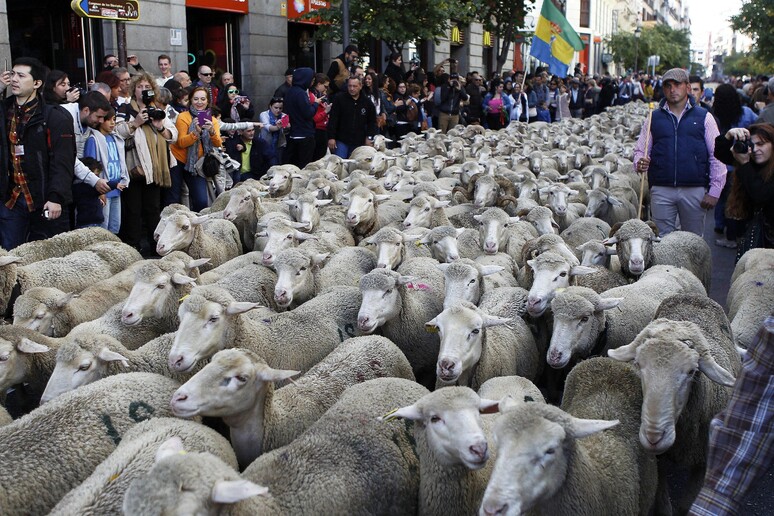The Food and Agriculture
Organization (FAO) said in a report on Wednesday that 1,458 farm
animal breeds, 17% of the global total, are currently at risk of
extinction.
The Rome-based United Nations agency added that the risk
status of another 58% is unknown due to a lack of data on the
size and structure of their populations.
Nearly 100 livestock breeds went extinct between 2000 and
2014, the FAO said in The Second Report on the State of the
World's Animal Genetic Resources for Food and Agriculture.
It identified indiscriminate cross-breeding as the main
cause of genetic erosion.
The FAO said other threats to animal genetic diversity are
the increasing use of non-native breeds, weak policies and
institutions regulating the livestock sector, the decline of
traditional livestock production systems, and the neglect of
breeds considered not competitive enough.
"For thousands of years, domesticated animals like sheep,
chickens and camels have contributed directly to the livelihoods
and food security of millions of people," said FAO Director
General José Graziano da Silva.
"That includes some 70 percent of the world's rural poor
today.
"Genetic diversity is a prerequisite for adaptation in the
face of future challenges".
ALL RIGHTS RESERVED © Copyright ANSA











